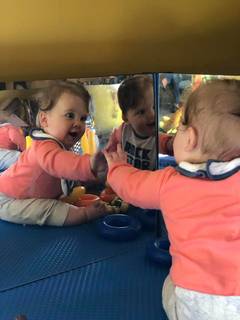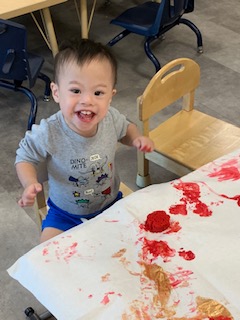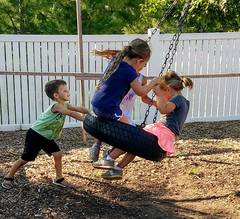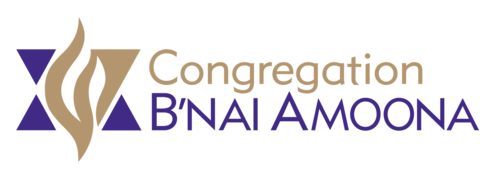Register | Calendar | Classrooms | Community | Media Gallery | Family Page
Our Classrooms
The curriculum encompasses all areas of their development – social, emotional, physical and cognitive. All activities are offered in a “play-based” environment
because that is how young children learn best. The classroom schedule includes a balance of teacher–directed and student–initiated activities, of active and quiet learning activities, and large and small group activities, and individual play.
For a more in depth overview click here
The LRECC welcomes all children, regardless of race, ethnicity or religion.

Infancy is a crucial time of rapid development. Children are driven to observe, experiment and experience new sensations, as they build lifelong foundations as explorers and problem solvers! New discoveries are at the heart of every interaction that our youngest children have with others and with their environment.
A solid attachment to their teachers and parents allow children the basis to understand that they can rely upon others to help them, and by being responsive to the needs of the children, our teachers help our youngest children learn that their opinions matter!
Register Now!

 Toddlers are eager to explore their growing world. Once they are walking (or while it is an evolving skill), they are able to interact with their surroundings in new and exciting ways! Toddlers love to fill baskets and dump them out…over and over and over again!
Toddlers are eager to explore their growing world. Once they are walking (or while it is an evolving skill), they are able to interact with their surroundings in new and exciting ways! Toddlers love to fill baskets and dump them out…over and over and over again!
At LRECC, we honor the inquisitive nature of toddlers and understand that they are forming new knowledge about the world around them with every interaction. Toddlers are given ample opportunity to experiment and to construct new knowledge in a sensory rich environment and at a developmentally appropriate pace with supportive, loving
teachers.
Children show us they are ready for the toddler class when they have dropped their morning nap, are able to drink from a sippy cup, are able to feed themselves, and when they are able to follow a one-step direction.
Register Now!
Two-three year-olds like to be independent! Favorite words are “Mine” and “No” and “I do it!” Two-three year-olds can go from excitement to anger to laughter within a few moments. A great deal of time is spent physically exploring their environment: pushing, pulling, filling, dumping, and touching.
They are surer of themselves and of what they can do as they grow. While they may try out new ideas and explore their surroundings, they will look to their parents and teachers to be a base of support and trust. They begin to show more interest in other children as they begin to understand that they are members of a larger community.
Register Now!

The three- year-olds are full of wonder and spend a lot of time watching, observing, and imitating. Their days are filled with busy exploration of their world. Three-year-olds are interested in practicing their fine and large motor skills, and it is common for them to want to spend the entire morning building with blocks, painting, going down the slide or riding a favorite tricycle. Three-year-olds have very little memory for past events and do not understand “yesterday” and “tomorrow” the way adults do. They often repeat activities or may do and undo actions such as putting a puzzle together. These sequences are important to later understandings of change and consistency.
“Energetic” and “imaginative” are words that are often used to describe 4-year-olds. Sometimes impatient and silly, they discover humor and spend a great deal of time being silly and begin to experiment with telling “jokes.” A 4-year-old’s language may
range new vocabulary to made-up nonsense words, as they play with language and learn new skills. Imagination suddenly becomes greater than life for the 4-year-old, who might confuse reality and “make-believe.” Four-five year-olds feel good about the things they can do and usually are eager to try new experiences. Four-five year olds are constantly learning and growing, and we create interesting, hands-on experiences to prepare them for their ever evolving educational journey beyond preschool.
Register Now!
Developmental Skills
Social & Emotional Skills:
The ability to work alone and with others in a positive way is extremely important. Children get to practice these skills daily as they play and work together and alone. Adults facilitate child interactions and model appropriate words and actions to use with friends, to join a group, to resolve conflict, to problem-solve together, etc. This is not something that can be mastered in one day. Social skills are developed and practiced throughout the years.
Language Skills:
Language is developed with the teachers modeling and encouraging the children to talk, to listen, even to write – at every opportunity – what they’re observing or doing as they work / play. Books are an important and constant part of the curriculum and are available to the children at all times. Children are also given access to writing materials and art utensils and are encouraged to experiment with them.
Fine Motor Skills:
Eye-hand coordination and the strengthening of small muscles (particularly in the hands and fingers) are very important in early childhood to prepare children for gripping instruments and writing. It is also important for them to be able to manipulate materials in various ways as they explore and experiment. We work on these fine-motor skills through the use of play dough, clay, sand, blocks, art materials such as scissors, woodworking tools, small manipulative games, puzzles, writing instruments (markers, pencils), and more.
Gross Motor Skills:
Exercising the body’s large muscles is important because the children are still working on coordination, balance, cross body movements and more. Outdoor play is a daily part of the program, where children can run, jump, climb, slide, kick and throw balls, swing and shoot basketballs. On inclement weather days (and sometimes on sunny days too) gross motor play takes place in the large room with balance beams, hula hoops, movement to music, dancing and exercising. We also have a formal playball instructor.
Math:
Many of the manipulatives that help develop fine motor skills, as previously mentioned, also teach math skills and concepts. For example, building blocks of various sorts automatically offer lessons in balance, geometry, measurement, estimation, etc. Children are encouraged to count objects. This gives them a better concept of what numbers mean. Grouping, sorting, graphing, and matching are some other activities that are often taking place as the children play in class.
Science & Nature:
A child’s life is full of real things to observe discover and experience. They then have opportunities to make predictions, see cause and effects, and be actively involved in science experiments. Outside children find worms, bugs, plants, flowers, ice, etc. Each of these discoveries becomes its own miniature science project. In the spring, the children will see caterpillars turn into butterflies, and tadpoles turn into frogs. Watching real things happen is one of the best ways to experience our wonderful world.
Art, Drama, & Dance:
Art is a perfect forum to accomplish exploration and expression, two ways of accessing the inner self. Art is not forced upon children, but is made available in a most aesthetically pleasing way. Art activities are designed to be open-ended and process oriented (rather than product oriented). Children are offered different media and a large variety of tools with which they are encouraged to explore and experiment.
Children also have the chance to play different roles as they interact and play side by side with their peers. In the dramatic play area children choose to be moms, dads, babies and animals (pets). In playing out these characters children gain socialization skills, and play out what they have seen modeled to them. Dance is another opportunity for self-expression. We welcome Morah Rachel each week to integrate Israeli dance and song with Hebrew vocabulary.
Music:
Music and song are an integral part of the LRECC educational program. Children are engaged to sing songs, both familiar and new. We incorporate Judaica and Hebrew. Rhythms and repetitions are subsequently introduced through music (which are helpful for math cognition). Children have the opportunity to play instruments and are encouraged to move their bodies during this musical experience.
Judaica:
Children are taught many of the beautiful parts of being Jewish. They learn about the upcoming holidays – not only how they are celebrated, but we explore the inspiring values (e.g.: There’s always time for a second chance, as demonstrated in the Yom Kippur holiday, etc.) that are connected to the holidays. We learn about doing Mitzvot like giving Tzedakah (charity), and reciting blessings before food.
LRECC is...
Contact Us
Sarah Haimann
Director of the Linda Rotskoff Early Childhood Center
314-576-3688 orsarah@bnaiamoona.com
Elisabeth Fox
ECC Administrative Assistant
314-576-3688 or Elisabeth@bnaiamoona.com





